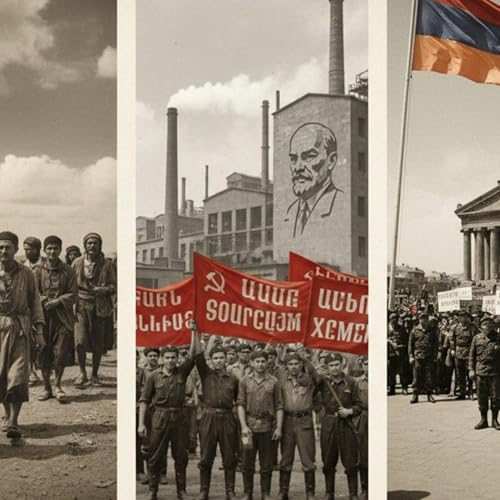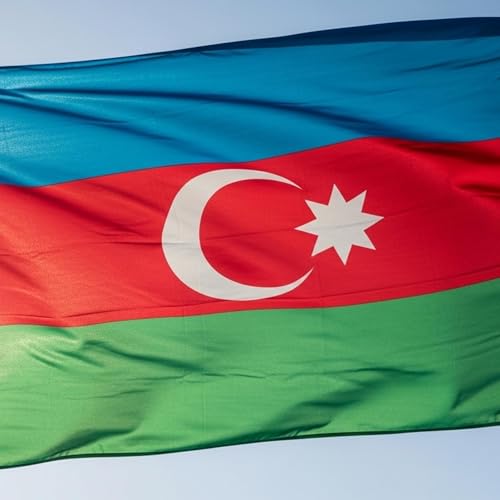Welcome to the 8th brand new episode of The Levant Files' Deep Dive Podcast Service! Prepare for an in-depth exploration as we delve into the complex, turbulent, and often misunderstood modern history of Libya. From the sands of the Sahara to the shores of the Mediterranean, we'll navigate a century of transformation guided by the insightful works of leading scholars Dirk Vandewalle and Bukola A. Oyeniyi.
Our journey begins with the very foundations: how Libya's challenging geography and vast desert expanses forged distinct regional identities—Tripolitania, Cyrenaica, and Fezzan—laying the groundwork for centuries of complex interactions.
We'll explore:
The Ottoman Era & Emerging Powers: Witness the waning Ottoman influence, the rise of local dynasties like the Karamanlis, and the pivotal emergence of the Sanussi order, a spiritual and political force that would profoundly shape Cyrenaica.
Italian Colonization & Brutal Realities: Delve into the harsh era of Italian colonial rule, the fascist ambition to create a "Fourth Shore," the brutal suppression of resistance, and the demographic re-engineering attempts that left deep scars.
Independence & the Monarchy: Follow Libya's path to a fragile, UN-brokered independence under King Idris I and the initial struggles of a new nation trying to unify its disparate parts.
The Oil Bonanza & Its Double-Edged Sword: Discover how the discovery of oil dramatically reshaped Libya's destiny, bringing immense wealth but also laying the seeds for patronage, dependency, and the erosion of traditional structures.
Gaddafi's Revolution & the Jamahiriya: Unpack the 1969 coup that brought Muammar Gaddafi to power. We'll examine his radical "Third Universal Theory," the Green Book, and the attempt to create a "state of the masses" (Jamahiriya)—contrasting the revolutionary rhetoric with the reality of centralized, often opaque, control.
Navigating Global Tides & Internal Tensions: Trace Libya's tumultuous international relations, from Arab nationalism and anti-Western stances to sanctions, the Lockerbie bombing, and eventual, cautious attempts at rapprochement. Internally, we'll see how oil wealth often bypassed genuine institution-building, fueling a system reliant on patronage and personal loyalty.
Reform Attempts and Resistance: Uncover the late-era attempts at economic and political reform, often driven by figures such as Saif al-Islam Gaddafi and Shukri Ghanem, and the powerful old guard resistance that ultimately stymied deep-seated change.
The 2011 Uprising & Descent into Chaos: Finally, we'll confront the seismic events of the 2011 Arab Spring, the rapid escalation from protests to civil war, NATO intervention, the fall and death of Gaddafi, and the subsequent fragmentation of the country, as militias and rival factions vying for power in the vacuum left behind.
This episode of The Levant Files untangles the intricate threads of Libyan history—from imperial ambition and colonial exploitation to the intoxicating power of oil wealth and the enduring challenge of building a unified, stable state. Join us as we explore how these historical forces have shaped the Libya of today, a nation still grappling with its fractured past.
Tune in now to "Libya's Fractured Past: Oil, Power, and the Path to Chaos" – the latest deep dive from The Levant Files!
The Academic Sources:
Oyeniyi, Bukola A. The History of Libya. Bloomsbury Academic, 2019.
Vandewalle, Dirk. A History of Modern Libya. Cambridge University Press, 2012.
Wright, John. Libya: A Modern History. Taylor & Francis, 2022.
 12 mins
12 mins Nov 3 202513 mins
Nov 3 202513 mins 24 mins
24 mins 17 mins
17 mins 23 mins
23 mins 18 mins
18 mins 21 mins
21 mins
